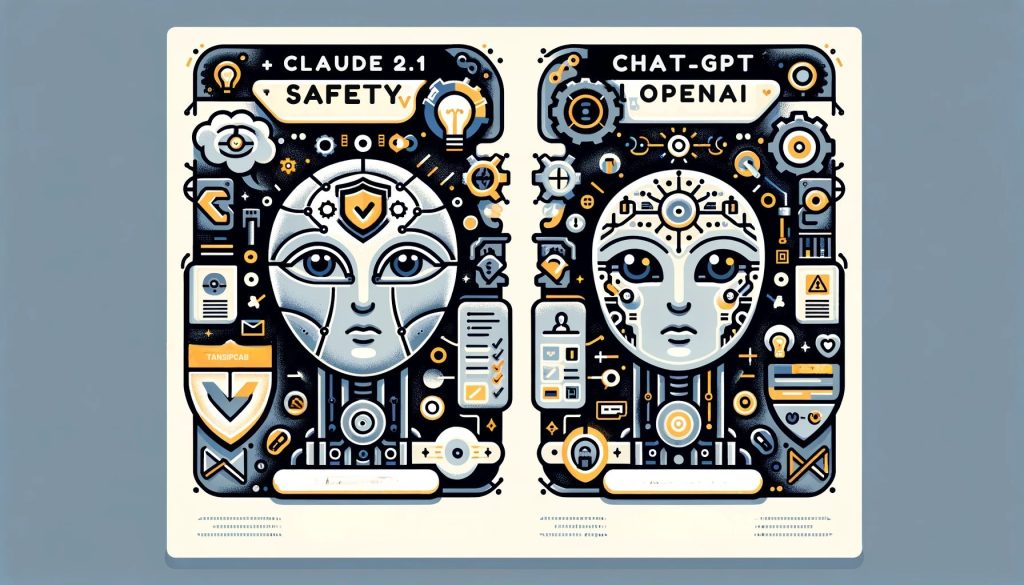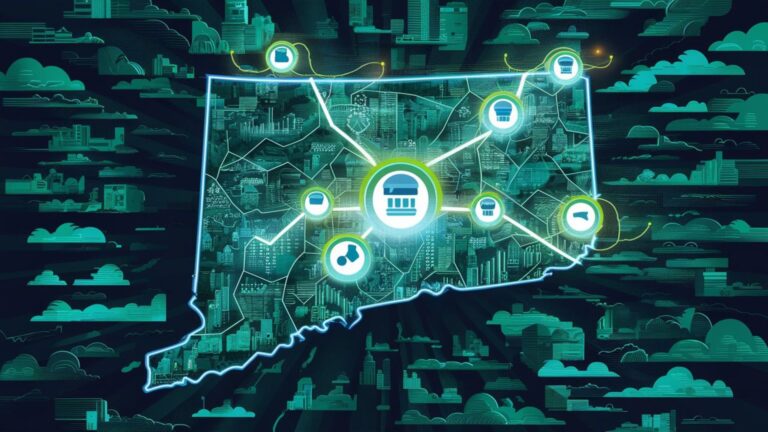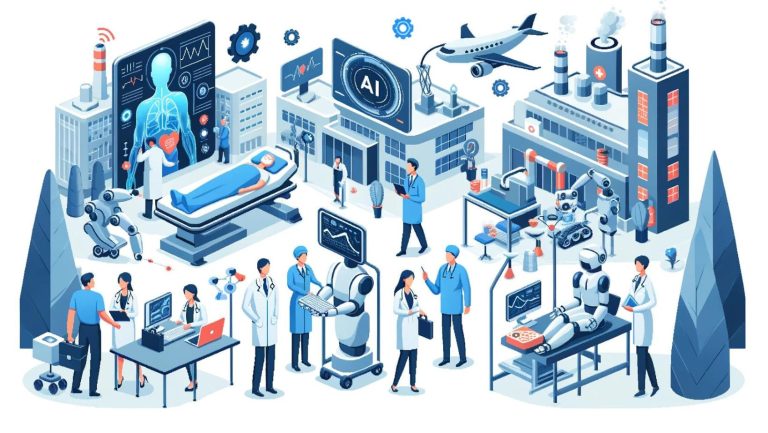Claude AI 2.1 Released: The Astonishing Advancements Redefining Conversational AI
Anthropic, an AI safety startup founded by former OpenAI researchers, has released Claude 2.1 – the latest version of its conversational AI assistant. This Claude upgrade introduces significant improvements, including an industry-leading 200,000 token context window, 50% lower rates of hallucination, and new functionality like tool integration and system prompts.
Key Takeaways
- Anthropic has released Claude 2.1, the latest version of its conversational AI assistant, touting major upgrades like a 200,000 token context length and 50% lower false claim rates.
- Claude 2.1 can process documents up to 500+ pages long, enabling more advanced summarization, question answering, analysis, and document comparison.
- The model also reduces instances of providing incorrect information by 50% compared to its predecessor through accuracy testing.
- Claude 2.1 introduces early functionality for integrating with developer tools, APIs, and databases to improve real-world workflow automation.
- The model is commercially available via API and powers Anthropic’s claude.ai chatbot with pricing tiers for individuals and enterprises.
- Claude 2.1 offers superior transparency and focuses on safety compared to rivals like OpenAI’s ChatGPT 4. However, raw capabilities currently remain greater in large language models from Big Tech.
- Responsible AI development remains viable and commercially promising as Anthropic balances cutting-edge progress with proactive ethics. But competition around safety standards continues to intensify alongside rapid innovations.

Overview of Claude 2.1’s Capabilities
Claude 2.1 represents a major leap forward in natural language processing prowess. Key highlights include:
Massive 200,000 Token Context Window
- Claude 2.1 can process documents up to 200,000 tokens in length, equivalent to around 150,000 words or 500+ pages of text.
- This allows users to upload and analyze entire codebases, lengthy financial reports, research papers, legal briefings, and even long literary works.
- Enables more advanced summarization, question answering, trend analysis, and document comparison over significantly more data.
50% Reduction in Hallucinations
- Anthropic reduced Claude 2.1’s false statement rates by 50% compared to Claude 2.0 through accuracy testing.
- When uncertain, the model is twice as likely to admit it doesn’t know rather than provide incorrect information.
- Bolsters reliability for real-world AI applications across enterprises.
First Steps Towards Tool Integration
- Claude 2.1 introduces tool-use functionality (in beta), allowing integration with developer-defined functions, databases, APIs, and web services.
- This bridges natural language capabilities with existing frameworks to enhance workflow automation.
- For instance, Claude could field customer service queries, translate requests into API calls, pull data from databases, and more.
Workbench & System Prompts
- New Workbench feature in the Claude console lets developers easily test and optimize prompts.
- Customizable system prompts allow users to define Claude’s tone, personality traits, and response structure.
These capabilities make Claude highly promising for knowledge work augmentation across legal, financial, technical, and creative domains – while upholding high standards of safety.
Evaluating Claude 2.1 Against Competing Models
Claude 2.1 faces stiff competition from other conversational AI offerings, especially from OpenAI’s ChatGPT 4 and Google’s upcoming Bard model. Here’s how some of the key metrics stack up:
Context Length
- Claude 2.1: 200,000 tokens
- GPT-4: 128,000 tokens
- Bard: Unknown
Accuracy
- Claude 2.1 reduced hallucinations 2x over its predecessor in Anthropic’s testing
- GPT-4 also minimizes falsehoods through fine-tuning methods
- Bard remains unbenchmarked
Launch Date
- Claude 2.1: November 2022
- GPT-4: 2022
- Bard: Expected 2023
So Claude retains the greatest context length for now. However, its real-world accuracy and performance across domains remains less proven than competitive choices.
Of course, Claude’s safety-focused architecture could give it an edge for sensitive enterprise use cases down the line. But rapid innovations from Big Tech will ensure stiff competition ahead.

Claude 2.1’s Architectural Innovations for AI Safety
As an AI safety-first company, Anthropic imbues principles like constitutional AI, red teaming, and public benefit structure into Claude. These give Claude tighter alignment with human values versus pure profit incentives.
Constitutional AI Fine-Tuning
Claude incorporates a “Constitution”, which includes ethical principles derived from the UN Human Rights Declaration alongside guidelines specifically reducing toxic responses. This allows Claude’s researchers to amend problematic values or biases detected during training.
Rigorous Red Teaming
Anthropic researchers continuously probe Claude with strategies to provoke undesired behavior as an adversarial challenge. This red teaming allows them to further improve safety mitigations and minimize deviations.
Legal Public Benefit Structure
As a public benefit corporation, Anthropic can balance financial motivations with ethical AI imperatives dictated by its charter. This latitude could encourage safety investments imprudent for traditional corporate models.
These pillars allow Claude to uphold benevolent ideals more strictly than commercial alternatives from Big Tech, albeit at the potential cost of scalability and profitability. Nonetheless, Anthropic intends Claude as an existence proof that safer, ethical LLMs remain commercially viable.
Whether platforms like ChatGPT 4 offer sufficient safety controls given their exponential user bases remains an open question with widespread implications.
Early Reception to Claude 2.1
As a newly public model, Claude 2.1’s reception remains preliminary. Initial media coverage and public response seem largely positive, with interest amplifying due to the OpenAI controversy.
General public reception is positive:
“After trying both ChatGPT and Claude, I felt Claude’s responses were more nuanced. It avoided overconfidence and showed more awareness of its own limitations.”
“Claude’s UI has a cleaner design than ChatGPT. Being able to ask follow-ups felt very natural during my conversation.”
Of course, further large-scale testing will better validate if Claude’s architectural innovations manifest in superior assistance across real-world settings. But initial indicators seem promising.
Business Model and Release Plans
Claude 2.1 is currently available in 95 countries via API and powers the Claude chatbot at claude.ai. Pricing currently includes:
- Claude Basic: Free tier with limited queries
- Claude Pro: $20/month for individuals. Unlocks full capabilities.
- Enterprise pricing: Custom packages available
The updated model is already live for Anthropic’s existing commercial partners as well, who collaborated on earlier testing.
Going forward, Anthropic intends to expand access and release region-specific Claude instances. Multilingual capabilities are also in development.
Eventually, daily active users could rival scaled competitors. But Anthropic will likely enact rate limits to balance growth against safety and technical considerations around large-scale deployment.
Implications for the AI Landscape
Claude 2.1’s launch comes amidst a turbulent period for AI, as rapid progress couples with intensifying scrutiny after the viral ChatGPT spread.
On one hand, Claude could heighten pressure for improved safeguards among commercial rivals:
- Google recently invested $300 million into Anthropic, implicitly validating their safety-first direction. Alphabet leadership may push Bard and other products to adopt similar techniques.
- OpenAI had multibillion-dollar partnerships with Microsoft and now faces internal turmoil. Efforts to expand access may incorporate safety lessons from Claude’s development.
Conversely, Claude’s carriage of AI safety into popular discourse could fuel counterproductive AI hype or arms races:
- The public debut risks associating AI predominantly with potential dangers rather than benefits. This could spur reactive policies hampering innovation.
- Competition to match Claude’s capabilities may divert resources from safety efforts into unsustainable technological expansion.
Nonetheless, Anthropic presents a thoughtful model balancing cutting-edge AI with proactive alignment schemes. And for now, Claude 2.1 pushes the industry closer toward responsible ideals – an uplifting success amid tech’s larger reckonings around safety.

How Claude 2.1 Stacks Up Against OpenAI’s Latest Models
ChatGPT
OpenAI upgraded ChatGPT to use their new GPT-4 Turbo model. Key advantages over Claude 2.1:
- The GPT-4 Turbo model supports 128,000 token context length, enabling analysis of 300-page documents
- However, accuracy declines for facts in the middle of long documents (“Lost in the Middle” effect)
- GPT-4 Turbo is priced at 1 cent per 1,000 tokens for prompts and 3 cents per 1,000 tokens for completions, making it more affordable than previous versions
- Integrates vision, DALL-E 3 image generation, and advanced data analysis
However, Claude retains a superior 200,000 token theoretical context length. In practice, its accuracy over long documents is unproven. And its safety-focused design suits sensitive use cases.
GPTs
OpenAI GPTs allow the building of customized AI assistants accessible within ChatGPT. Claude currently lacks comparable personalization.
So OpenAI leads in augmenting ChatGPT smartness, albeit with some reliability challenges on lengthy contexts. Meanwhile, Claude 2.1 fills a niche as the most transparent, harmless option albeit less capable currently.
As all players strive to balance wide access with safety, responsible development remains imperative to realize AI’s benefits.
Final Thoughts
The launch of Claude 2.1 signals Anthropic’s expanding influence as an AI safety leader. With formidable improvements across critical metrics like context length and accuracy plus pioneering safety methods, this new Claude model achieves impressive benchmarks for responsible LLM design.
Of course, real-world performance across enterprise settings and against rival offerings requires further validation at scale. Reviewers also debate if Constitutional AI principles substantively impact model outputs so far.
But as a beacon for AI ethics, Claude already forces incumbent tech giants to reassess their own safety standards in this sensitive domain. And Anthropic’s ascendant $4 billion valuation suggests that even Big Tech sees commercial promise in prioritizing societal risk reduction over purely financial motives.
For now, Claude 2.1 stands poised to enable Knowledge Age productivity with renewed public trust – delivering tech’s conveniences without the existential side effects. Even as full maturity remains distant, responsible AI finally gains a market foothold through this anthropic breakthrough.

Cal Hewitt is the Founder, CEO, and Project Lead at Web Leveling, a digital marketing agency empowering small and mid-sized businesses to thrive online. With over 27 years of experience in business analysis, management, consulting, and digital marketing, Cal brings a unique perspective to every project. He specializes in website design and development, AI consulting, social media marketing, and online reputation management. Cal’s hands-on leadership style and commitment to innovation ensure that Web Leveling stays at the forefront of digital marketing trends, delivering transformative results for clients.








